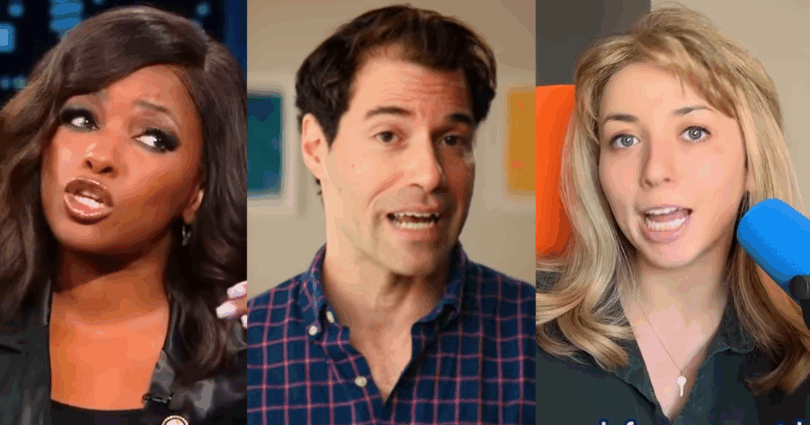Democrats Turn to Profanity as Struggles With Voters Intensify Ahead of Midterms
As election season heats up, Democratic candidates are turning to an unconventional strategy: profanity.
From social media posts to campaign speeches, the use of expletives has surged among candidates vying for seats in Congress, signaling a sharp shift from the traditionally restrained political language once common in Washington.
Rep. Jasmine Crockett (D-TX) has emerged as a key figure in this trend, earning widespread media coverage for her frequent use of coarse language in official appearances.
Other Democratic hopefuls have followed suit, incorporating profanity into their campaign messages in an apparent effort to appeal to frustrated voters, Breitbart News reports.
New York congressional candidate Mike Sacks promoted his campaign by posting on X, vowing to “unf*k our country,” though his message included a partial bleep.
Meanwhile, Illinois congressional candidate Kat Abughazaleh used uncensored language, urging her fellow Democrats on social media to “grow a fucking spine.”
Her campaign manager, Sam Weinberg, defended the approach, stating, “Lots of candidates use haughty, stilted language that sounds out of touch and even alienating.”
“Kat sounds like a real person — and real people are fucking fed up with the status quo.”
Democratic Senate hopeful Nathan Sage, a Marine veteran and former sports radio host, also deployed blunt language in his campaign launch.
He pledged to “kick corporate Republican [Sen.] Joni Ernst’s a**” and criticized policies that he claimed had “f*ed over” farmers.
This shift in political language is not confined to campaign trail rhetoric.
Inside Congress itself, words like “ass” and “pissed” have now made their way into speeches delivered on the floors of the House and Senate, breaking long-standing norms of decorum, according to Breitbart.
The rise in profanity among Democrats has drawn criticism from Republican groups.
A spokesperson for the National Republican Senatorial Committee argued that Democrats “seem obsessed with saying ‘f—ing’ and ‘a–’ as the strategy to win back the voters that rejected them in 2024.”
Some experts suggest that Democrats’ reliance on profanity reflects deeper frustration within the party.
Michael Adams, a professor and author of “In Praise of Profanity,” told The Hill, “I think that in the case of the Democratic candidates … the swearing reflects their sense of crisis.”
“There’s just a point at which the usual vocabulary will not be sufficiently expressive in the moment.”
Democrats have also integrated profanity into party-wide campaigns.
Senate Democrats recently launched the “Sh– That Ain’t True” campaign, targeting President Donald Trump’s record with ads that feature prominent politicians using explicit language to accuse him of broken promises.
In some cases, these ads bleep out the expletives, but in others, they leave them uncensored.
While some blame the president for ushering in a new era of political coarseness, noting his frequent use of blunt language at rallies, the strategic use of profanity in Democratic ads marks a notable departure.
Research cited by The Hill and GovPredict found that profanity among lawmakers’ social media posts surged dramatically during Trump’s first year in office.
At the time, The New York Times referred to Trump as “the profanity president.”
Despite these attempts to rebrand their messaging, Democrats continue to grapple with historically low polling numbers and persistent accusations of being out of touch with working-class voters.
In another recent attempt to energize supporters, Democratic congresswomen participated in a “Choose Your Fighter” video on X, mimicking video game characters to appeal to younger audiences, although the effort received mixed reactions.
Scroll down to leave a comment and share your thoughts.


well…they are called DEMONRATS FOR A REASON!!!